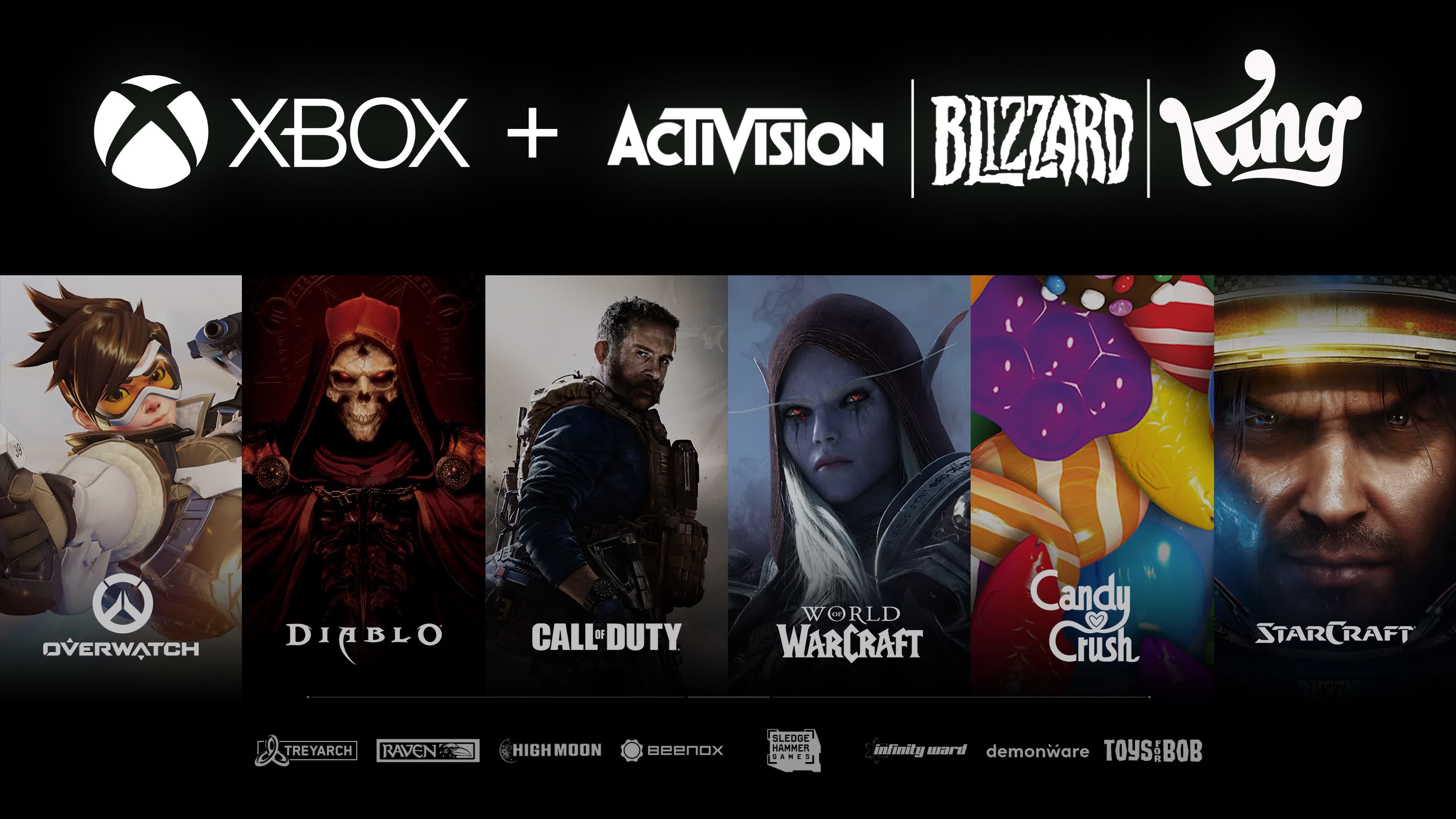Why it matters: Microsoft's $69 billion attempt to acquire Activision Blizzard King faces headwinds from regulators in the United States, the United Kingdom, and Europe. A US lawsuit could slow down the buy, even if Microsoft prevails. As the UK and Europe ramp up the pressure, signs indicate the US might endorse the deal, possibly with concessions.
The New York Post reports that the US Federal Trade Commission (FTC) is split on whether to levy an antitrust lawsuit against Microsoft's attempt to buy Activision. Rather than face a split vote, the FTC might approve the deal. Sources told the Post that one member of the four-person FTC panel already favored the acquisition, and another recently leaned towards Microsoft. A 2-2 vote would effectively kill a lawsuit.
In June, the FTC said it would examine the deal's potential impact on workers. Microsoft started talks for the acquisition soon after Activision became embroiled in a sexual harassment scandal that sparked an employee walkout.

Activision workers have since successfully voted twice to unionize, which Microsoft said it wouldn't oppose. An op-ed supporting the buyout from the Communication Workers of America's president this week could further bolster its pro-worker image, improving its chances of closing.
Bloomberg's sources say that Microsoft is prepared to fight if the FTC does sue. The company hasn't yet offered any concessions but has not taken them off the table either. A suit would likely drag the deal beyond Microsoft's expected June 30 closure date, but the company has a good chance of winning in court.
United Kingdom and European Union regulators have closely scrutinized the deal because it would hand Microsoft ownership of Call of Duty, one of the gaming industry's biggest franchises. Sony has repeatedly raised fears that Microsoft would stop releasing Call of Duty titles on PlayStation, while Microsoft continually denies such intentions.
While Microsoft hasn't proposed remedies to the UK's Competition and Markets Authority, it will reportedly offer the EU concessions sometime this month. Any compromises from the company would involve the continued release of Call of Duty games on rival consoles like PlayStation and could come before the EU can formalize its objections to the acquisition next year. A deal with the FTC could cover the same point of contention.
The acquisition has so far gained approval in Brazil, Saudi Arabia, and Serbia.
